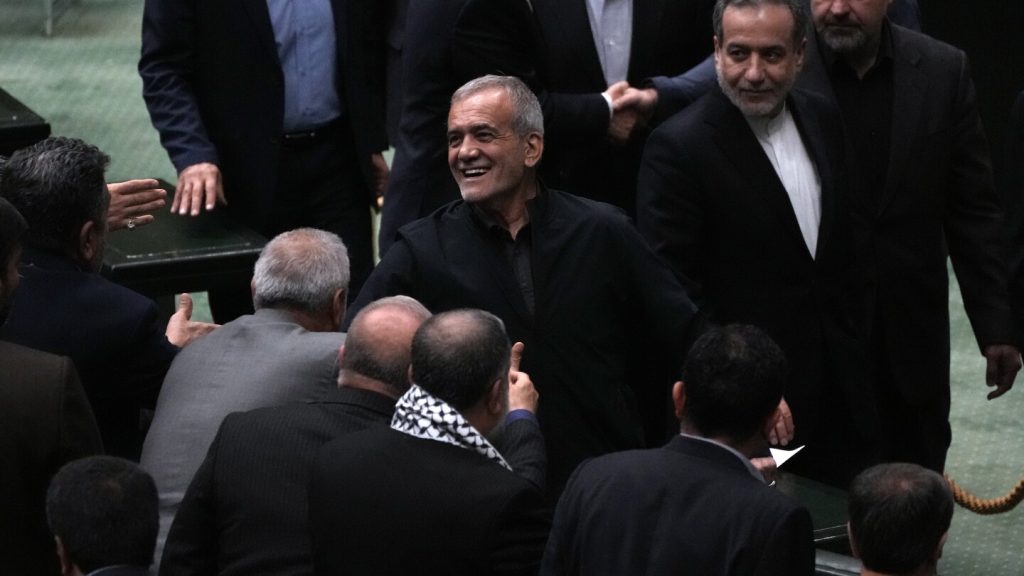Iran’s hard-line parliament has approved all members of Masoud Pezeshkian’s Cabinet, marking the first time in over two decades that a leader has been able to get all of his officials through the body. Pezeshkian, a reformist president who took office after his predecessor’s death in a helicopter crash, was able to secure approval for his Cabinet that includes a mix of consensus choices that appease all power centers within Iran’s theocracy. This move is seen as a strategic decision to avoid controversial selections and foster unity among various factions in the country. Pezeshkian’s success in getting all his officials approved is significant, especially considering that dropping proposed ministers is a tradition in Iran’s parliament.
Among the notable members of Pezeshkian’s new Cabinet is Abbas Araghchi, a career diplomat who will serve as Iran’s new foreign minister. Araghchi was part of the Iranian negotiating team that reached a nuclear deal with world powers in 2015, which was later abandoned by the United States under former President Donald Trump. Pezeshkian has expressed his intention to revive the nuclear deal, and Araghchi’s appointment signals a commitment to pursuing diplomatic solutions to Iran’s international challenges. The new defense minister, Aziz Nasirzadeh, received the most support from lawmakers, further highlighting the Cabinet’s diversity and expertise in key areas like foreign affairs and defense.
The inclusion of Farzaneh Sadegh as the Housing and Road Minister marks a significant milestone, as she is the first female minister in Iran in more than a decade. This move reflects a step towards gender equality and increased representation of women in key leadership positions. Additionally, Pezeshkian’s Cabinet includes several ministers who served under the late President Ebrahim Raisi, showcasing a willingness to draw on experienced individuals from different backgrounds to form a well-rounded team. Despite some challenges and opposition, Pezeshkian’s successful approval of all his proposed ministers demonstrates his ability to navigate the complexities of Iran’s political landscape and foster unity within the government.
Former Foreign Minister Mohammad Javad Zarif, who campaigned for Pezeshkian in his election, resigned as a vice president for the new leader over the Cabinet selections. This development highlights the diversity of opinions and political affiliations within Iran, even among those who initially supported Pezeshkian’s presidency. Zarif’s resignation also underscores the challenges and tensions that can arise in the process of forming a new government, especially when balancing the interests of various factions and stakeholders. Despite these challenges, Pezeshkian’s success in securing approval for his Cabinet marks a significant achievement that sets a positive tone for his presidency and signals a commitment to collaboration and consensus-building in Iran’s political landscape.
The approval of Pezeshkian’s Cabinet by Iran’s hard-line parliament is a noteworthy development that reflects a strategic approach to governance and leadership in the country. By selecting a diverse group of officials, including the first female minister in over a decade, Pezeshkian has demonstrated a commitment to inclusivity and representation within his government. The Cabinet’s composition, which includes individuals with varying backgrounds and experiences, suggests a comprehensive approach to addressing Iran’s domestic and international priorities. Moving forward, Pezeshkian’s ability to navigate political complexities and secure approval for his proposed ministers bodes well for his administration’s effectiveness in addressing key challenges and advancing the country’s interests on the global stage.


